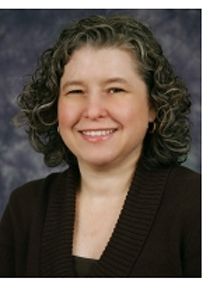 Susan Bostwick, MD
Susan Bostwick, MD
Dr. Susan Bostwick, Professor of Clinical Pediatrics, is Executive Vice Chair for Administration and Faculty in the Department of Pediatrics and Chief of the Division of General Academic Pediatrics at Weill Cornell Medicine. In addition, she is the Associate Dean for Affiliations at Weill Cornell. Prior to the Department of Pediatrics she served as the Vice Chair for Education (2010-2021), Director of Pediatric Graduate Medical Education at NewYork-Presbyterian Hospital, Weill Cornell Campus (1999-2010, Associate Director 2010-2012), Medical Director of Inpatient General Pediatrics (1997-2003) and the Physician Liaison to Information Technology at NewYork-Presbyterian/Weill Cornell Medical Center (2007-2021)
What obstacles are women in medicine still facing when it comes to inclusion, equity and diversity?
One of the obstacles that women face is since we are still underrepresented at many of the decision making "tables", decisions are made without our opinions being voiced, and yet it remains difficult to get a seat at the table. With almost 30 years of medical schools having close to even split in gender, the upper echelons, e.g. chairs, professors, CEOs, etc., are still not as equally representative. Continuing to ensure that women's voices are heard and that women have the opportunities to lead and make decisions is a continuing part of the challenges.
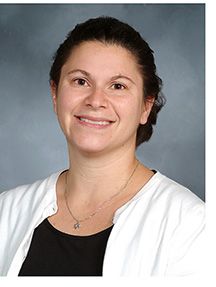
Marianne E. Nellis, MD, MS
Dr. Marianne Nellis is the John D. & Lili R. Bussel, M.D. Associate Professor in Pediatric Hematology and Attending Pediatrician in pediatric critical care medicine at New York Presbyterian Hospital. She graduated from Colgate University with a BA in biochemistry in 1999. She received her medical degree from Johns Hopkins School of Medicine in 2003. After completing her residency in pediatrics at NewYork-Presbyterian Hospital/Weill Cornell Medical Center, she served an additional year as chief resident. Dr. Nellis worked abroad in pediatric intensive care units at Soroka University Medical Center (in Beersheva, Israel) and Safra Children's Hospital at Sheba Medical Center (in Tel Aviv, Israel). She returned to the United States and New York Presbyterian Hospital/Weill Cornell Medical Center to complete her fellowship training in pediatric critical care medicine. Her research is focused in clinical studies of hemostasis in the pediatric intensive care unit. She recently led an international group of experts in the development of plasma and platelet transfusion guidelines for critically ill children. She is the proud mother of Yehuda, Eitan and Anna.
What advice can you give women who are just starting their careers in medicine?
It is an exciting and challenging time to be starting your career as a woman in medicine. While disparities between women and men in healthcare are increasingly recognized, programs and initiatives to overcome these differences are relatively new. I believe that mentorship is the key to success - locating those people who will push and encourage you to be your best, and be willing to lift you up to reach your goals. It takes more than one mentor. I have thankfully found clinical mentors, research mentors and life mentors - all of whom are different people. And, most importantly, remember your balance - whatever it may be in your life (family, a partner, children, faith, hobbies, etc). It is these people and/or passions that can serve as your buoy when you encounter challenges.
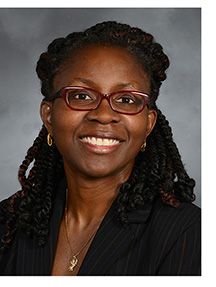 Joy D. Howell, MD
Joy D. Howell, MD
Dr. Joy Howell served as Site Director for the Pediatric Intensive Care Unit at the former New York Hospital of Queens for the first five years (presently New York Presbyterian-Queens) of her career. As a junior faculty member, Dr. Howell enjoyed participating in fellow, resident and medical student education both at Weill Cornell as well as New York Hospital of Queens. Dr. Howell served as the Program Director for the Pediatric Critical Care Medicine Fellowship from 2007-2020. During that time she received the Award for Teaching Excellence in 2006 and 2010 from the pediatric residency program. She remained active in the education of medical students, residents, and fellows; her teaching has also come to include PICU nursing staff. For her commitment to providing excellent patient care and providing team-based education, she was a recipient of the Physician-Of-The-Year Award in 2012. In 2019, she received the Excellence in Medical Education Award for medical student education. In 2017 she was invited to serve at Vice Chair for Diversity in the Department of Pediatrics and in early 2020 invited to serve Weill Cornell Medicine as Assistant Dean of Diversity and Student Life.
Why is having women in leadership in medicine so important?
It's a matter of representation! As we banter about the terms diversity, equity , inclusion and belonging, one means of assessing our progress is to evaluate the breadth and depth of representation. Over the past 50 years there has been undeniable progress with respect to women in medicine. As of 2018, women represent just over 50% of medical school matriculants in the United States. Yet when you examine academic medical faculty by gender and rank, you find that although the proportion of women faculty has increased overall, representation diminishes with advancing academic rank. As of 2018, women represented 58% of instructors yet only 25% of full professors. Representation by women in position of leadership is both a marker of progress but also a means of generating the necessary changes to the learning and working environment required to truly achieve equity.
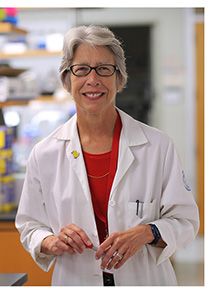 Katherine A. Hajjar, MD
Katherine A. Hajjar, MD
Dr. Katherine Hajjar is Vice Chair for Research in the Department of Pediatrics and the Brine Family Professor of Cell and Developmental Biology. She also serves as Senior Associate Dean for Faculty. Dr. Hajjar was named the Stavros Niarchos Professor of Pediatrics (1997-2002) and served as Chair of the Department of Cell and Developmental Biology (2002-2014). She is credited with the discovery of the cell surface receptor for tissue plasminogen activator (annexin A2), and with demonstrating its importance in vascular homeostasis and angiogenesis.
Dr. Hajjar is an elected member of the Society for Pediatric Research, the American Pediatric Society, the American Society of Clinical Investigation, the Association of American Physicians, the American Clinical and Climatological Association, and the American Association for the Advancement of Science.
What advice can you give women who are just starting their careers in medicine?
I would advise early career women faculty to find the best mentor they possibly can. This would be someone who has an outstanding record in training academic faculty, especially women. As a potential mentee, one can talk to other people the mentor has trained, and ask about her/his sensitivity to the particular stresses and demands that women face in combining an academic career with family life, childbearing, and child rearing. You will want your mentor to be someone by whom you are heard and seen, and someone who has a specific interest in you and your career, not just for the short term, but in an evolving relationship that spans many years.
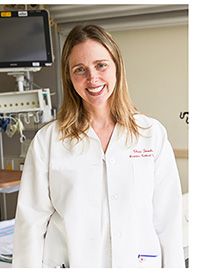 Chani Traube, MD
Chani Traube, MD
Dr. Chani Traube is the Director of Clinical Research Mentoring in the Department of Pediatrics, Professor of Pediatrics in the Division of Critical Care Medicine at Weill Cornell Medicine and an Attending Pediatrician at NewYork-Presbyterian/Weill Cornell Medical Center and Komansky Children's Hospital at Weill Cornell Medical Center. She received her medical degree from Albert Einstein College of Medicine in New York, and completed both her Pediatric residency training and her Pediatric Critical Care Medicine fellowship training at NewYork-Presbyterian Hospital/Weill Cornell Medical Center. Dr. Traube's clinical interest and area of expertise is in the diagnosis and management of critically ill children. Her research focus is on pediatric delirium.
What obstacles are women in medicine still facing when it comes to inclusion, equity and diversity?
I think, as in other areas of systemic inequity, COVID brought existing gender issues into stark relief. With respect to progress in academic medicine, I honestly believe COVID represented a giant leap backwards for all womankind. This was particularly acute for working mothers. With the breakdown in societal support – schools, childcare, etc… -- all parents were forced to take on many extra roles at home, but it seems that women bore the brunt of the work. This severely impeded academic productivity, and also led women I know to turn down opportunities for advancement. Some have even taken extended leaves from work.
I attribute this to two lagging areas with respect to gender equity – the wage gap and leadership gap. Happily, I think these both are fixable problems. Studies show that early in their careers, women don’t negotiate as ‘aggressively’ as men do. With early training in job negotiation strategies, we can position up-and-coming junior faculty to eliminate this gap from the get-go.
And it is not just about the financial compensation; it is also about respect, titles, editorial boards, and leadership positions. As an example, there are still far too many all male panels at academic conferences. This may be an area where our current Zoom-culture is actually helping to build diversity. Women no longer have to travel in order to lead sessions, and conference organizers can invite women from all across the world to attend.
Women have come a long way in academic medicine. There is no longer a gender barrier to becoming a doctor. Women are graduating medical school at rates equal to, or higher than, their male counterparts. And slowly we are chipping away at the leadership gap. With increased attention paid to retaining mid-career female faculty, I believe we can further mitigate the obstacles women still face with respect to inclusion, equity, and diversity.
 Sallie Permar, MD, PhD
Sallie Permar, MD, PhD
Dr. Sallie Permar is the Chair of the Department of Pediatrics at Weill Cornell Medicine and Pediatrician-in-Chief at NewYork-Presbyterian/Weill Cornell Medical Center and NYP Komansky Children’s Hospital. She is also the Nancy C. Paduano Professor in Pediatrics at Weill Cornell Medicine and Professor of Immunology and Microbial Pathogenesis at the Weill Cornell Graduate School.
Dr. Pemar has led a number of NIH-funded training programs to develop physician-scientists, including serving as the Director of the National Institute of Child Health and Development (NICHD) Pediatric Scientist Development Program. She also serves on the board of the National CMV Foundation. Dr. Permar received the Oswald Avery Award for Early Achievement from the Infectious Diseases Society of America and has published nearly 150 studies in journals including Nature Medicine, Cell, Proceedings of the National Academy of Sciences and JAMA Pediatrics.
Why is having women in leadership in medicine so important?
It is so important in academic medicine that we have all the team member and patient diversities represented at the leadership level – the diversity of viewpoints takes any effort to a higher level. Moreover, we will build a next generation of clinicians and scientist who will both represent and serve the health needs of all people.

